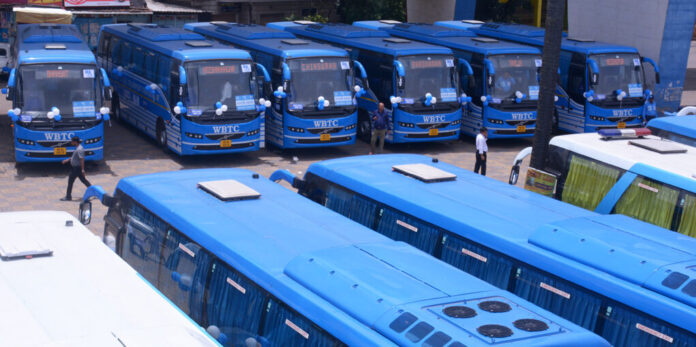The buses, which are air-conditioned, have been fitted with a Bus Roof Mounted Air Purification System (BRMAPS) called ‘Suddha Vayu.‘ This system, developed in collaboration with scientists from IIT Delhi, is the first of its kind in India. As part of a pilot project, 20 buses have been launched to assess the system’s performance and analyze seasonal variations in pollution levels. The BRMAPS is designed to purify the ambient air as the bus moves along its route. Equipped with sensors, the system continuously monitors the air quality in real-time, measuring levels of particulate matter (fine inhalable particles) while in motion. The attached air filters capture pollutants, ensuring that clean air is released into the atmosphere.
The air purifiers in these buses utilize high-efficiency particulate absorbing filters and activated carbon filters to reduce levels of polluting gases and suspended particles by approximately 90%. The real-time data collected by the sensors will be sent to the Integrated Command and Control Centre of WBPCB for further analysis. In addition to the BRMAPS, the air-conditioned buses also feature a Bus Inside Air Purification System (BIAPS) that cleans the air circulating inside the vehicles. This system enhances the air quality within the buses, providing commuters with an environment where they can breathe air that is at least 50% cleaner, according to officials.
The West Bengal government is taking multiple steps to combat pollution and monitor industrial emissions. The state’s environment department plans to deploy drones equipped with sensors to measure real-time air quality and combat industrial pollution, particularly during nighttime. These drones will help identify areas with high pollution levels and enable authorities to enforce regulations effectively. The use of drones will address the issue of some industrial units turning off their pollution tracking devices during odd hours to evade surveillance. By equipping drones with air quality sensors and cameras, the authorities can monitor pollution levels and identify violations without facing logistical challenges.
Initially, the sensors on the drones will measure particulate matter levels. However, there are plans to incorporate sensors to collect data on other gaseous pollutants, such as Sulphur dioxide and Nitrogen dioxide, in the future. The introduction of air purifier-equipped buses and the deployment of drones reflect the West Bengal government’s commitment to combatting pollution and creating a healthier living environment for its residents. These initiatives are expected to make a significant contribution to improving air quality and promoting sustainable living in Kolkata.





